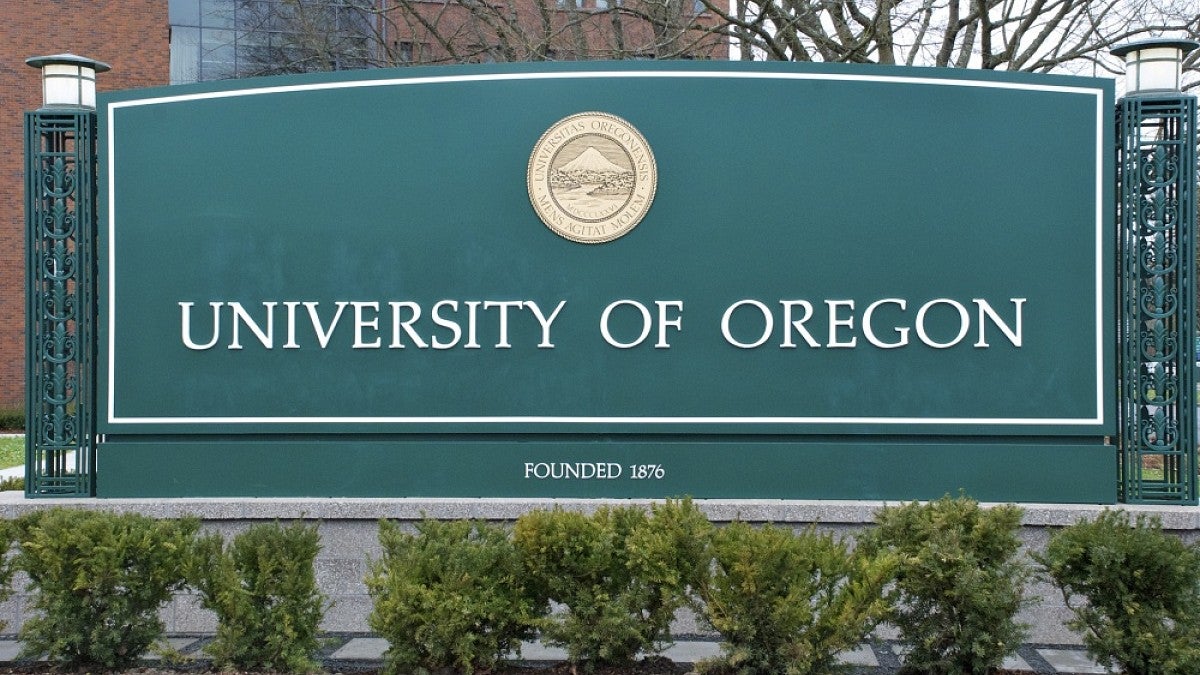After holding 10 public meetings over fall and winter terms, the University of Oregon’s Tuition and Fee Advisory Board has finished its recommendations on student tuition and fees for the upcoming academic year.
The advisory board is recommending that the undergraduate tuition and mandatory fee rates for next year’s incoming class of undergraduate students be set at a level that is higher than this year’s first-year students by 4.5 percent for Oregon resident students and 3 percent for non-resident students. Those rates would then be locked for those students for five years.
The recommended rates only apply to the incoming class of first-year and transfer students this fall because under the UO’s new guaranteed tuition program, tuition rates and mandatory fees for all other undergraduate students are already set.
Current first-year students this year will see no increase in their tuition or administratively controlled mandatory fees next year because of the Oregon Guarantee. Meanwhile, other continuing undergraduate students – both resident and nonresident – who started at the UO prior to summer 2020 already have a locked tuition and administratively controlled fees increase of 3 percent next year, as part of the phase-in of the guaranteed tuition program.
The advisory board — made up of students, staff and faculty members — sent a memo outlining its final recommendations to UO President Michael H. Schill on Feb. 12.
In a memo to campus, Schill invited comments on those recommendations. He will also hold a virtual public forum on tuition on Feb. 18 at 6 p.m. to gather further direct comment. Register online to attend. Written public comment will be accepted until Monday, Feb. 22, at 5 p.m.
Schill will take into consideration both the advisory board’s recommendations and public feedback as he makes his recommendation to the UO Board of Trustees, which will ultimately vote on tuition rates for next year at its March quarterly meeting.
During their 15 hours of meetings, advisory board members discussed the university’s finances in detail. That included reviewing the dramatic impact of the COVID-19 pandemic, which saw the entering first-year class in 2020 reduced by almost 600 students and a resulting drop of around $17.5 million in recurring tuition revenue.
The UO expects to run a deficit of around $3.4 million in its tuition-supported Education and General Fund this academic year. That deficit would have run much larger had the UO not taken a number of cost-cutting steps over the last year including hiring, travel and pay action freezes.
The advisory board also discussed the ongoing uncertainty around whether or not next year’s enrollment will rebound this fall, as well as whether the UO will see a cut to its state funding during Oregon’s current legislative session.
Because of students’ and their families’ own financial and emotional struggles caused by the pandemic, the advisory board did not recommend tuition and fee increases that would fully close the UO’s anticipated budget gap next year. Instead, the UO could still face a budget deficit of around $13 million, under the advisory board’s recommendation, depending on fall enrollment and the state’s funding allocation for public universities.
Advisory board members stressed that it would show a strong commitment to students to not rely solely on higher tuition rates to close the UO’s budget deficit.
The proposed athletics ticket fee is designed to help replace some of the $1.8 million for the athletics department that previously came from the UO incidental fee. The Associated Students of the University of Oregon, which controls the incidental fee, voted this year to reallocate those funds to other priorities, including support of basic needs such as food security and textbook affordability.
Starting this fall, that will end the athletics ticket agreement, in place since 1987, which allowed students to have complimentary access to most athletics events and a limited number of football and basketball tickets.
The proposed replacement ticket fee is $29.50 per academic term and would be charged to incoming undergraduate and graduate students this fall. The proposed fee is set at the same rate as the dollars per student previously collected by the ASUO each year to pay for athletic tickets.
If implemented, the athletics department would work with the Division of Student Life to determine how to manage access to UO athletics events for current undergraduate and graduate students who would not be charged the new fee.
The advisory board did not make a recommendation on the ticket fee but instead proposed a maximum combined increase in undergraduate tuition and fees, whether or not the ticket fee is adopted.
“It makes sense to recommend a total increase in what students should end up paying in tuition and fees combined,” said student advisory board member Conrad Sproul. “That seems more intuitive to help students understand our recommendations.”
The advisory board did discuss the proposed athletics ticket fee and its pros and cons at two meetings. Board members stressed the importance of athletics to the UO experience for many students and that without that access, some students may not be able to afford to attend those events.
Board members also noted the challenging timing of adopting a new fee amid the pandemic, as it would represent a net new cost for students since the incidental fee is not being significantly reduced by the ASUO.
“Even though it’s not great from a student perspective to have a fee increase, I can’t imagine students not being able to go to the games,” said student advisory board member Whitney Warth. “That would be a big change, and many students value the sports part of the UO experience.”
—By Saul Hubbard, University Communications


